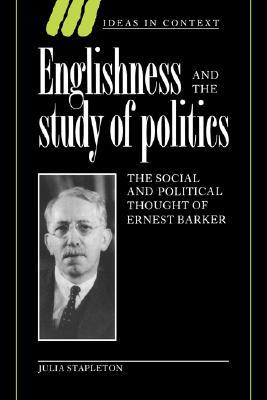

 |

|

The average rating for Englishness and the study of politics based on 2 reviews is 3 stars.
Review # 1 was written on 2015-05-13 00:00:00 Darcy Watt Darcy WattA Turn to Empire sketches how liberalism evolved alongside imperialism in Britain and France by focusing on certain key liberal theorists. The sketch suggests that 18th century liberals were more instinctively anti-imperialist, as the humanitarian and economic costs were obvious and no theory of essential inferiority of indigenous peoples had yet taken hold. But as military and technological superiority of the imperial powers developed, liberal theorists began to justify empire, either as necessary for the development of "savage" peoples (J.S. Mill) or as a necessary undertaking to solidify democracy in the imperial center (Tocqueville). These pursuits all took for granted the essential inferiority of those subjected to imperial domination. While Pitts doesn't engage much with this literature, her thesis jives well with the theory that modern racism developed with the onset of science. The pre-Enlightenment Christian idea of singular human ancestry (one blood, monogenesis) began to face competition from new proto-scientific theories positing distinct origins for different races (polygenesis). The liberal notion of progress, applied to populations neatly classified by the latest scientific theories, easily became a hierarchy of races. One of the entertaining aspects of the book is the different perspectives on familiar faces. Someone more accustomed to the conservative thought of Edmund Burke, skeptical of and hostile to the French Revolution, might be surprised by his genuine humanitarian concern for people dominated by imperialism. Likewise someone more familiar with Tocqueville from his analysis of American democracy will be surprised at his defense of brutal colonial policies in Algeria. Leftist critics of liberalism often point to its deep — they say inherent — connections to racism, colonialism, and various other unsavory isms. By showing how such ideas interacted with liberalism from the mid-18th to the mid-19th centuries, A Turn to Empire gives us reason to doubt that racialized and imperialist liberalism was a foregone conclusion. This is especially clear when reading about Adam Smith, who certainly had a theory of progress and stages of development based on modes of production, but who also firmly rejected ideas of innate inferiority or superiority. Instead he thought it best to presume any given society's practices were likely the result of adaptation to their particular conditions. Liberals seeking to excise racist and imperialist ideas from liberalism could do worse than dusting off their Smith after reading Pitts. |
Review # 2 was written on 2020-01-30 00:00:00 VIRGIL FREELEN VIRGIL FREELENقراءة تاريخ الليبرالية والامبريالية بالنسبة لنا كمسلمون عرب ليس خيارا للترفيه وانما بات ضروريا لاننا لازلنا نعاني اثار التوسع الامبريالي من القرن التاسع عشر وكانه قدر لنا العيش بارث الماضي تاره الديني واخر السياسي وان كانا مرتبطان على طول الخط، تناقش الكاتبة جينيفر بيتس ابرز مفكري بريطانيا وفرنسا الليبراليين وتوضح مدى تغير هذا الفكر بالنسبة لتأييد الامبراطورية بين منتصف القرن الثامن عشر الى منتصف القرن التاسع عشر حيث تذكر لنا ادم سميث و ادموند بيرك والى حد ما جيريمي بينثام من بريطانيا و كوندروسيه وكونستانت وديسجوبريه من فرنسا مثالا على الليبراليين الاوائل الذين انتقدوا الإمبراطورية، و جيمس مل وجون ستيوارت مل و توكفيل ممن برروا للامبيريالية وساندوها في بلادهم، اظن ان تاريخنا في مواجهة الاستعمار كان نتاج هذه الافكار وكيفيه التصدي والعلاج تكمن في دراسة ملابسات الماضي وآثاره حاليا. |
CAN'T FIND WHAT YOU'RE LOOKING FOR? CLICK HERE!!!